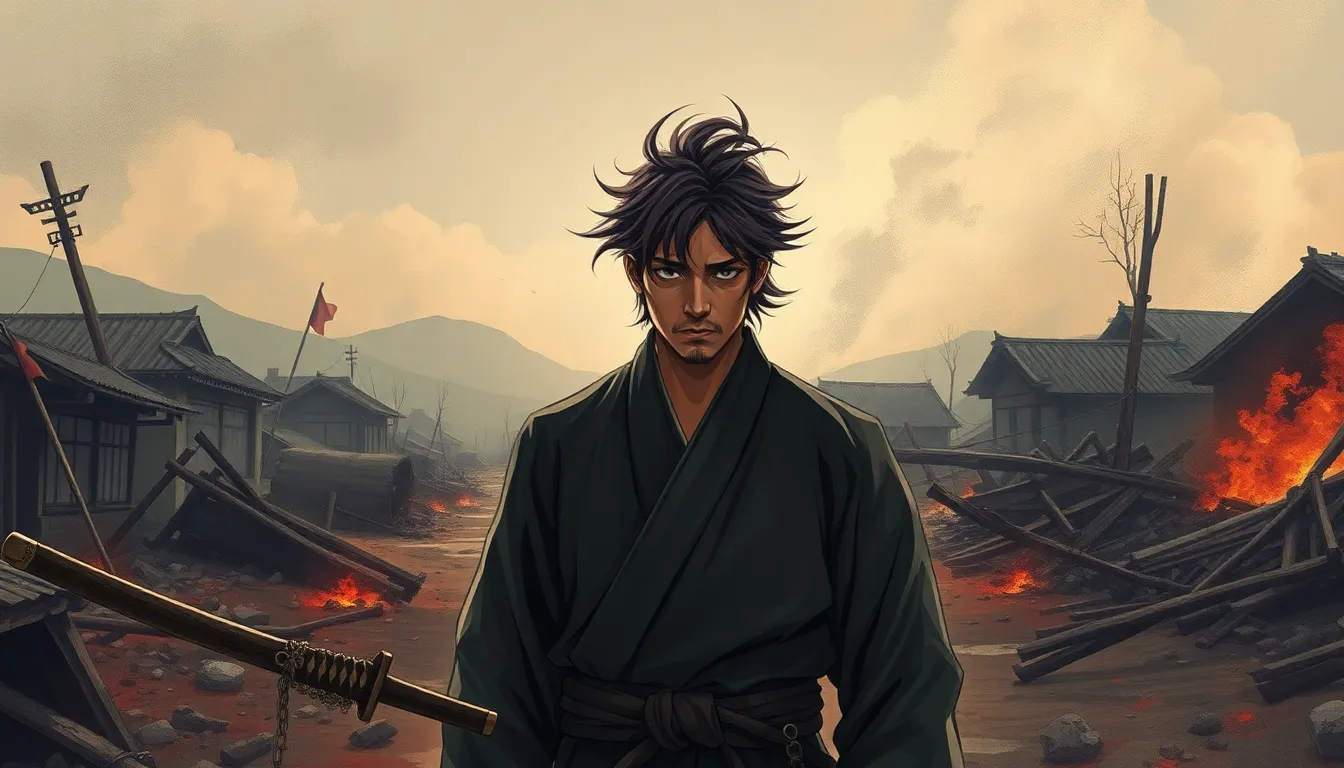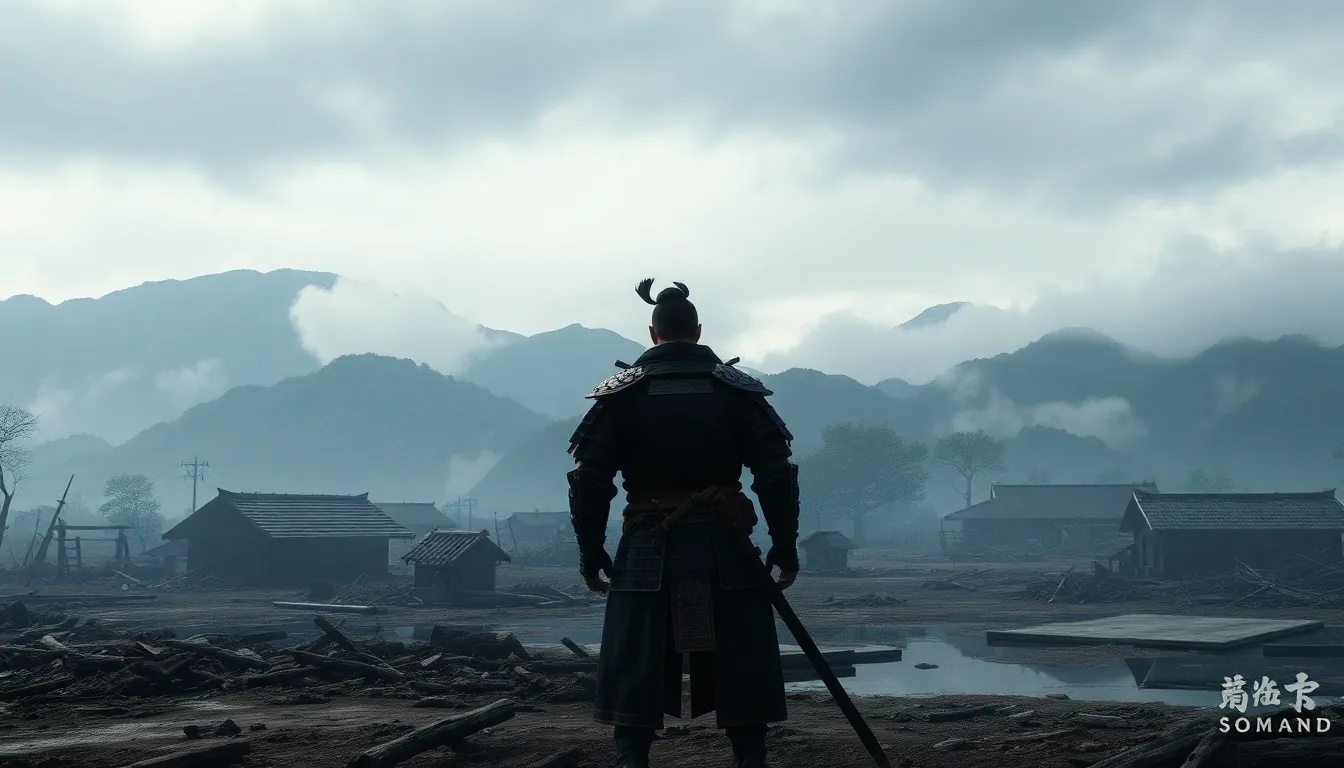In the vast, stunning landscapes of Tsushima, players embark on a journey that’s as much about honor as it is about loss. “Ghost of Tsushima” doesn’t just serve up epic samurai battles; it dives deep into the emotional trenches of grief and sacrifice. As players navigate the challenges of a war-torn island, they quickly discover that loss isn’t just a backdrop—it’s a driving force that shapes every decision and relationship.
This game brilliantly illustrates how loss can transform a warrior into a ghost, forcing them to confront their own values and identity. With breathtaking visuals and a gripping narrative, it’s hard not to feel the weight of every fallen comrade. So grab your katana and prepare to explore how this masterpiece redefines the impact of loss in gaming, reminding us that sometimes, the greatest battles are fought within.
Table of Contents
ToggleThe Impact of Loss in Ghost of Tsushima
Loss serves as a driving force in “Ghost of Tsushima.” The protagonist, Jin Sakai, faces profound grief after the Mongol invasion decimates his home and community. He loses his uncle, a crucial figure in his life, which compounds his struggle with identity and honor.
Grief manifests in Jin’s relationships, particularly with his allies. These relationships evolve as the weight of loss shapes their actions and decisions. His bond with Yuna highlights how loss can forge unexpected partnerships, guiding him on a path of vengeance and redemption.
Sacrifice accompanies loss throughout the narrative. Characters like Jin and his allies make difficult decisions, often prioritizing the greater good over personal desires. This theme underscores the game’s message about the cost of war and the sacrifices required to achieve justice.
The game’s stunning visuals enhance the impact of loss. Landscapes, once vibrant, reflect the devastation of war. These visuals serve as a stark reminder of what has been sacrificed, reinforcing the emotional stakes Jin faces.
Internal battles illustrate how loss transforms Jin’s worldview. He transitions from a noble samurai to a ghost, embracing a different approach to warfare. This evolution underscores the central message: loss reshapes identity, sometimes necessitating a departure from long-held values.
Each character’s response to loss fosters a deeper understanding of their motivations. Their journeys resonate with players, especially those familiar with grief. By intertwining personal and collective loss, the game encapsulates the broader human experience, providing a poignant exploration of resilience.
Exploring Themes of Grief

Grief serves as a powerful undercurrent in “Ghost of Tsushima.” The protagonist, Jin Sakai, confronts loss at every turn, impacting his journey profoundly.
Personal Loss and its Representation
Personal loss underscores Jin’s motivations, driving him deeper into conflict. The death of his uncle, a significant figure in his life, weighs heavily on his conscience. Scenes depicting devastated homes evoke strong emotions, representing the larger tragedy faced by his community. Characters like Yuna illustrate how grief can catalyze unexpected alliances, challenging cultural norms. Through their shared experiences, players gain insight into the emotional toll of warfare. The game’s visual storytelling further amplifies these themes, immersing players in Jin’s sorrowful world. Personal loss manifests not just as a narrative detail but as a catalyst for Jin’s transformation.
The Role of Honor in Grieving
Honor intertwines intricately with grief in Jin’s path. Traditional samurai values dictate loyalty and duty, complicating his mourning process. Embracing vengeance sometimes conflicts with his sense of honor, creating a moral dilemma. Characters’ adherence to code highlights the importance of reputation amidst loss. As Jin grapples with these issues, he questions what it truly means to honor the fallen. His evolution from a noble warrior to a vengeful ghost illustrates the struggle between grief and adherence to values. Ultimately, the game portrays grief as a complex emotional landscape where honor shapes responses to profound loss.
Character Development and Transformation
Loss profoundly shapes the character arcs in “Ghost of Tsushima.” The experiences of grief and sacrifice create complex relationships and lead to significant transformations in Jin and the characters around him.
Jin Sakai’s Journey
Jin’s journey encapsulates the struggle between traditional samurai values and the necessity of adapting to survival. Facing the loss of his uncle, he grapples with personal honor and internal conflict, influencing his decision-making. Grief drives him deeper into the fight against the Mongol invasion, pushing him to embrace the identity of a ghost. This metamorphosis highlights Jin’s transformation from a noble samurai into a figure willing to employ ruthless tactics for the greater good. Ultimately, his evolution connects directly to the broader theme of loss, depicting how personal grief can redefine one’s path.
Supporting Characters and Their Losses
Supportive characters also undergo significant changes that reflect their experiences of loss. Yuna serves as a prime example, as her brother’s death fuels her determination to fight against the Mongols. This tragedy forges a strong bond with Jin, showcasing how shared experiences can foster unexpected partnerships. Other characters, like Sensei Ishikawa, confront their own grief, impacting their motivations and actions throughout the narrative. Each character’s story interweaves with Jin’s, illustrating various responses to loss that enrich the overall narrative and deepen the player’s understanding of grief’s pervasive influence.
Cultural Significance of Loss
The theme of loss permeates “Ghost of Tsushima,” significantly shaping its narrative and character development. Loss resonates not only in individual experiences but also within the broader cultural context.
Historical Context of the Mongol Invasion
The Mongol invasion during the late 13th century marked a pivotal moment in Japanese history. Mongol forces, estimated to be around 150,000 strong, invaded Tsushima Island in 1274, leading to devastation. This historical backdrop creates a profound understanding of the turmoil faced by Jin Sakai. Character responses signify the struggle against overwhelming odds. Jin’s personal grief, stemming from this invasion, reflects the larger national trauma experienced by Japan’s people. As communities faced destruction, familial ties broke, and identities shifted. The historical invasion shapes motivations, illustrating loss as not just personal but shared among a nation.
Spirituality and the Afterlife in Japanese Culture
Death and loss in Japanese culture carry significant weight, influencing how characters respond to grief in “Ghost of Tsushima.” Spiritual beliefs emphasize the importance of honoring ancestors and the cycle of life. Concepts like kami and yūrei reflect connections to the afterlife, creating a rich spiritual framework. Characters often seek respite through these beliefs, hoping for peace for lost souls. This spiritual dimension deepens Jin’s internal conflict regarding honor and vengeance. In facing the ghosts of his past, he grapples with the repercussions of his choices. Spirituality underscores the emotional landscape, revealing how loss transforms relationships and perceptions of duty. Through these elements, the game reinforces the significance of honoring those lost, compelling players to reflect on the greater implications of grief.
The impact of loss in “Ghost of Tsushima” resonates deeply with players, offering a rich narrative that intertwines grief with personal and cultural identity. Jin Sakai’s transformation from a noble samurai to a ghost reflects the profound changes that loss can impose on one’s values and actions. Through visually stunning landscapes and complex character arcs, the game illustrates that loss is not just a personal tragedy but a shared experience that shapes communities.
By navigating the emotional terrain of grief, players gain insight into the resilience required to confront such challenges. The game’s exploration of honor and sacrifice emphasizes that loss can forge unexpected connections and drive individuals toward redemption. Ultimately, “Ghost of Tsushima” invites players to reflect on their own experiences of loss and the enduring impact it has on the human spirit.




